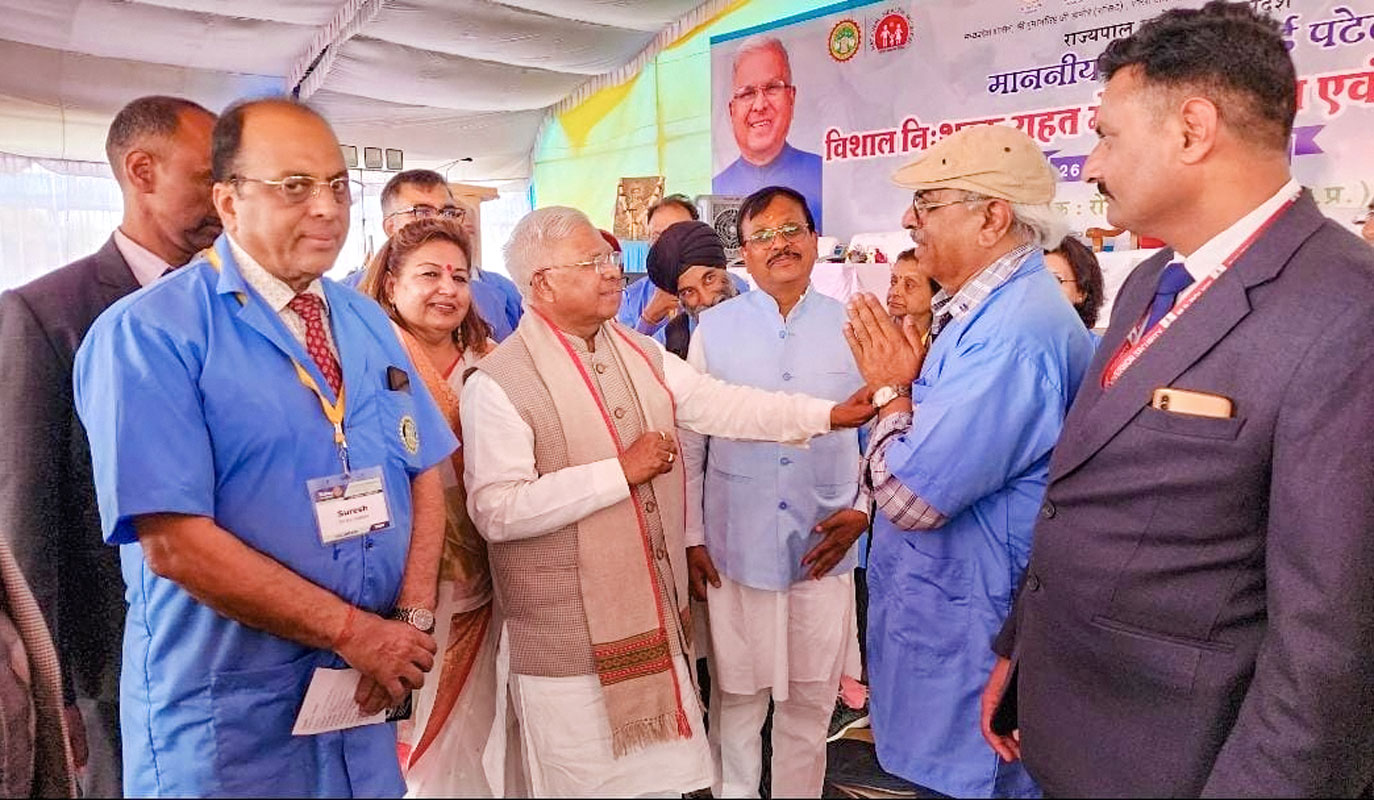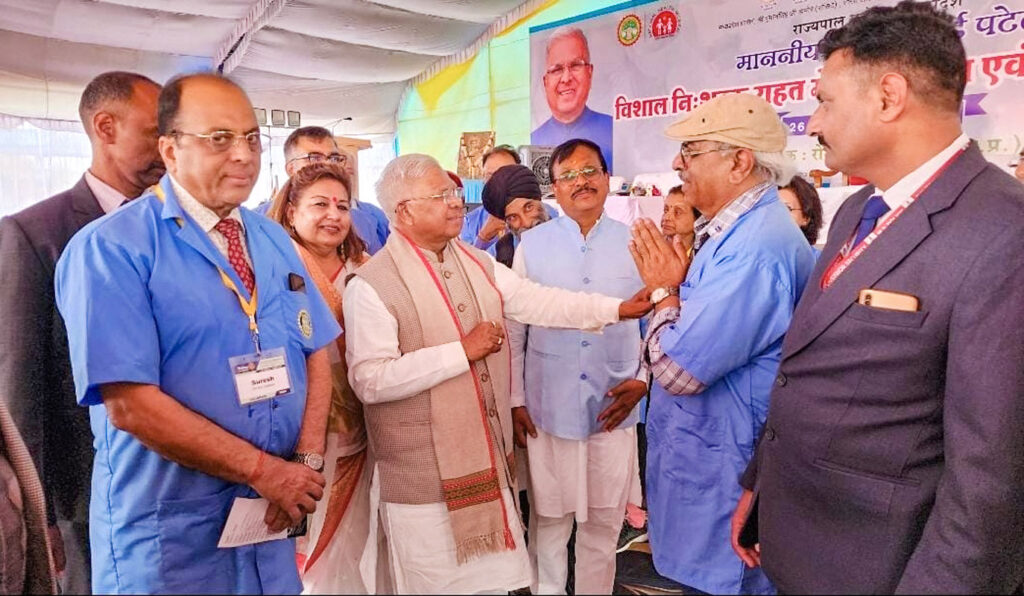
The look of relief on the parents’ face when they saw their son cured of a congenital disorder at the camp was our most cherished gift,” says PDG Dhiran Datta, chairman of the RAHAT medical mission hosted by RC Jhabua, RID 3040, for a week in February, at Jhabua in Madhya Pradesh. The 12-year-old boy was suffering from a condition where his right arm was stuck to his cheek, and fingers intertwined with his mouth. “A year after his birth we had taken him to a couple of sadhus who said that he was cursed. We had accepted his condition until now. These divine men (Rotarians) have now saved our son and no words are enough to convey our thanks to them,” said the mother, with tears rolling down her cheeks, recalls Datta.
Two months before the scheduled medical camp, he had visited the tribal village near Jhabua and came across the family. He took a picture of the boy and sent it to the PGIMER Hospital, Chandigarh, seeking medical opinion. “The plastic surgeon said that he can treat the boy and so we got the family to the camp,” he says. The corrective surgery performed during the medical camp gifted the child a new lease of life, freeing him from the physical and emotional burden he had been carrying since birth.
The villages surrounding Jhabua are steeped in superstitious beliefs and the people attribute their diseases and disorders to the wrath of the gods or their ‘past karma’ and visit indigenous healers.
Jhabua is surrounded by Adivasi hamlets where medical help is rare. “In most of these villages, the locals do not go to any doctor at all. These places are steeped in superstitious beliefs so much so that the villagers attribute their diseases and disorders to the wrath of the gods or their ‘past karma’ and visit indigenous healers,” he adds.
One of the women visitors to the medical camp had suffered an infection because of which her chin and neck got stuck together. “A healer had ‘treated’ her by torching the area, and she came to the camp with severe burn injuries.” She too was successfully treated by the cosmetic surgeon from PGIMER at the camp.
Datta sites another instance where a gynaecologist removed a 7.6kg-tumour from a woman’s uterus. “She was wrongly informed by a seer that she was carrying a malformed foetus!”
One early morning Datta and his team, out on a walk, found an elderly woman abandoned by her family the previous night at the campsite entrance. She was carried into the camp where she was diagnosed with a liver and kidney disorder. She is now undergoing treatment at the Aurobindo Hospital in Indore.
The RAHAT camp treated over one lakh people with various ailments and those who needed extended treatment were admitted at the Aurobindo hospital. “Their treatment cost is borne by Rotarians and other welfare trusts in the district,” says the mission chairman. The total cost worked out to ₹1 crore which was met by the district Rotarians. The state government and the district collector also contributed to the cause. MP Governor Gangu Bhai Patel inaugurated the medical camp in the presence of Women and Child Welfare minister Nirmala Bhuria. DG Ritu Grover was present at the inaugural event.
Nineteen OTs at four government and various private hospitals across the town were used to perform the surgeries. Rotarians from RID 3080 coordinated in getting the doctors and surgeons for the camp. Fourteen doctors from Chandigarh, Raipur, Nagpur and Jhabua, and two Rotarian doctors treated patients at the camp. Mammography, cervical cancer and pathology vans were used to screen people for cancer, BP, ECG, diabetes etc. Datta says that of the 70 per cent women screened, 34 per cent had cancer symptoms and 23 women were admitted at the Aurobindo hospital for treatment.
The Inner Wheel Club of Jhabua, the Bohra Samaj and other social groups also pitched in with contributions for the project. The Rotaractors and NCC cadets helped in the smooth administration of the camp. Food, snacks, water and beverages were distributed to patients and caretakers all through the week. Gynaecological issues and mineral deficiency were predominant in women, while men battled cardiac ailments, high BP and diabetes. A lethal combination of poverty, illiteracy and lack of medical amenities plague the region, says Datta.
The earlier medical mission, four years ago, in the same venue had served 40,000 villagers.










